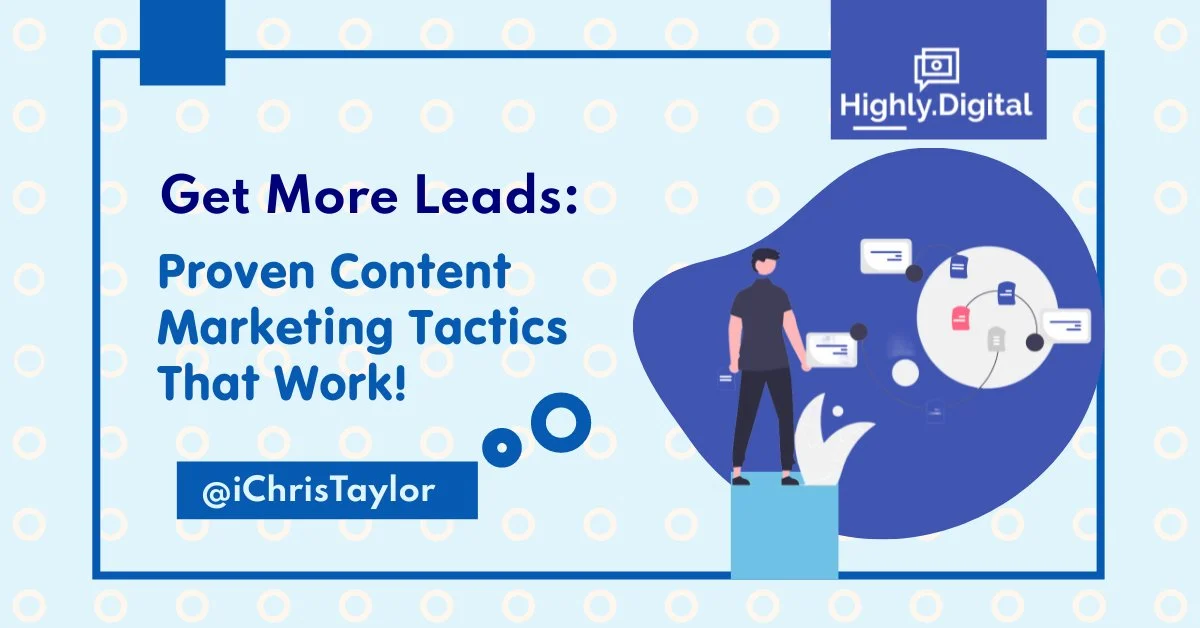The key responsibilities of a content development consultant revolve around crafting compelling narratives that connect with audiences.
They analyse target demographics to tailor content, ensuring it aligns with both user needs and business objectives. SEO optimisation is essential, as it enhances visibility and engagement.
Creating a content calendar helps maintain organisation and accountability within the team. Performance metrics are closely monitored to continually refine strategies.
Isn't it fascinating how a simple post can influence a brand's story? By embracing emerging technologies and data-driven insights, these consultants prepare organisations for what's next.
Want to uncover more about their impact?
Key Takeaways
- Develop and manage a variety of content types, aligning with audience interests and brand storytelling for effective engagement.
- Conduct thorough audience research to tailor content strategies based on demographics, behaviours, and pain points.
- Implement SEO optimisation techniques to enhance content visibility and improve organic search rankings.
- Evaluate performance metrics to assess content effectiveness and refine strategies for improved audience engagement.
- Collaborate with cross-functional teams to ensure alignment and accountability in content production and delivery.
Overview of Content Development
Understanding the nuances of content development is vital for organisations aiming to effectively engage their target audiences. This process involves the creation, planning, and management of diverse content types, such as articles, blogs, videos, and infographics. Each type serves a specific purpose and resonates differently with audiences.
Consider how brand storytelling can enhance your message. It transforms ordinary content into compelling narratives that connect emotionally with your audience.
Successful content development requires thorough audience research to identify their interests. It also demands collaboration across teams, ensuring consistency in messaging.
Regularly analysing performance metrics helps refine strategies. In a world overflowing with information, creating relevant and engaging content is not just beneficial; it is essential for capturing and maintaining audience attention.
Strategic Content Creation
Effective strategic content creation hinges on a deep understanding of the target audience's needs and preferences, which allows for the development of tailored content that resonates and engages.
It's not just about creating content; it's about creating the right content.
Aligning content themes with business objectives is essential. Every piece should support broader marketing goals.
Have you considered how your messaging aligns with what your audience truly values?
Storytelling techniques can enhance your narratives, fostering emotional connections with your audience.
Regular content audits and performance analysis help refine strategies.
Why guess what works when you can analyse past successes?
Audience Research and Analysis
Audience research and analysis serves as the foundation for creating content that truly resonates with target demographics. By identifying demographic characteristics such as age, gender, and location, content can be tailored to meet specific needs.
Have you ever wondered why certain posts catch your eye? That's behavioural analysis at work! Using tools like Google Analytics and social media insights, consultants can track user preferences, revealing what content resonates with audiences.
Conducting surveys and interviews enriches this understanding, uncovering motivations and pain points.
Moreover, competitor analysis highlights gaps in the market. What's missing in current offerings?
Ultimately, effective audience segmentation informs not just content creation but also the timing and platforms for distribution. Engaging the right audience at the right time can greatly enhance reach and impact.
SEO Optimization Techniques
Employing robust SEO optimisation techniques is essential for enhancing the visibility and reach of content in an increasingly competitive online environment.
Start with keyword selection; identifying high-traffic terms relevant to your audience can greatly improve organic search visibility.
On-page SEO techniques, such as optimising title tags and meta descriptions, help search engines understand your content's context.
Linking is vital too. Internal and external backlink strategies improve user navigation and raise your site's authority.
Don't forget the importance of creating high-quality content that meets user intent.
Google's algorithms favour content that effectively answers queries.
Collaboration With Cross-Functional Teams
Collaboration with cross-functional teams is vital for a content development consultant.
How do we ensure that everyone—from marketing to product development—is on the same page?
Effective team communication strategies, project coordination techniques, and conflict resolution approaches are significant for creating content that resonates with audiences and aligns with business objectives.
Team Communication Strategies
Establishing effective communication strategies is essential for a content development consultant working with cross-functional teams.
Clear communication fosters collaboration and success. Here are key strategies to implement:
- Employ communication tools like Slack or Trello for real-time updates.
- Schedule regular check-ins to maintain alignment among team members.
- Organise brainstorming sessions to gather diverse input and spark creativity.
- Implement a shared editorial calendar to track deadlines and responsibilities.
- Encourage open feedback mechanisms to identify issues early and adjust strategies.
These practices not only enhance teamwork but also lead to impactful content outcomes.
When everyone is on the same page, creativity flourishes.
Project Coordination Techniques
Effective project coordination is the backbone of successful content development, particularly when working with cross-functional teams. Clear communication channels are essential to ensure project alignment among all stakeholders.
Utilising project management tools like Trello or Asana can streamline task delegation. These platforms allow team members to track progress and share updates in real-time.
Regular check-in meetings foster accountability and open dialogue. Are you addressing challenges promptly? By defining roles and responsibilities, you reduce confusion and maintain project momentum.
Moreover, platforms like Slack or Microsoft Teams encourage continuous feedback and idea sharing. This collaborative environment enhances productivity.
Conflict Resolution Approaches
Navigating conflicts within cross-functional teams requires a strategic approach that prioritises open communication and mutual understanding.
Active listening is essential. Team members must feel safe to express their concerns, fostering a culture of openness.
Consider these effective conflict resolution techniques:
- Regular check-ins to gauge team dynamics.
- Clear communication channels to prevent misunderstandings.
- Defined roles within teams for accountability.
- Brainstorming sessions for collaborative problem-solving.
- Conflict resolution training to equip members with mediation techniques.
Performance Metrics Evaluation
A thorough performance metrics evaluation is essential for understanding the effectiveness of content strategies.
By leveraging tools like Google Analytics, consultants can track user engagement and behaviour. Have you ever wondered how well your content resonates with your audience? Key performance indicators (KPIs) such as click-through rates, conversion rates, and bounce rates provide valuable insights.
Regular analysis helps identify high-performing content, enabling consultants to replicate successful strategies. It also highlights areas in need of improvement.
Establishing performance benchmarks based on industry standards can further assist in evaluating content effectiveness.
Measuring performance over different time frames allows for adjustments based on immediate trends or long-term patterns. This proactive approach ensures that content continually meets the needs of its audience.
Content Calendar Management
Managing a content calendar is essential for maintaining a structured approach to content creation and distribution. It serves as a roadmap for your editorial workflow, guiding teams to deliver cohesive messaging.
By utilising content calendar tools, you can enhance collaboration and clarity. Consider these key aspects:
- Organise content topics and publication dates.
- Assign responsible team members for accountability.
- Incorporate relevant events or campaigns for timely relevance.
- Enable visibility into upcoming content and deadlines.
- Regularly review and adjust based on performance metrics.
This proactive management not only aligns your content with marketing strategies but also fosters timely responses to audience needs.
Are you ready to transform your content strategy? Embrace the power of a well-structured content calendar today!
Industry Trends and Insights
As the content landscape evolves, staying updated on emerging content technologies is essential for consultants.
How can you engage audiences in a world where attention spans are shrinking?
Emerging Content Technologies
Transforming the content landscape, emerging technologies are reshaping the way businesses approach content development.
From AI advancements to immersive experiences, the future is bright and complex.
Consider these key trends:
- AI advancements: Tools like GPT-3 are personalising content creation.
- Video integration: By 2025, video will drive 82% of internet traffic—are you ready?
- Interactive formats: Quizzes and polls can double engagement rates.
- Voice optimisation: With smart speakers on the rise, adapting content for voice search is vital.
- AR applications and VR experiences: These technologies are enhancing consumer engagement and transforming marketing strategies.
As a consultant, understanding these technologies is essential.
Are you prepared to utilise these trends for your content strategy?
Audience Engagement Strategies
Engaging an audience effectively is essential in today's online environment, where attention spans are fleeting and competition is fierce. By leveraging storytelling techniques, brands can create narratives that resonate deeply with their audience, fostering emotional connections.
Personalisation is another key strategy; 80% of consumers appreciate tailored experiences. Moreover, user-generated content can elevate engagement, as it encourages participation and builds community.
Here's a quick look at effective audience engagement strategies:
| Strategy | Engagement Impact | Key Element |
|---|---|---|
| Storytelling Techniques | Deepens emotional connection | Relatable narratives |
| User Generated Content | Builds community | Audience participation |
| Interactive Content | Enhances sharing by 70% | Polls and quizzes |
| Video Content | 82% of internet traffic | Visual storytelling |
| Targeted Content | 54% higher engagement | Addressing pain points |
These strategies can greatly enhance audience interaction and loyalty.
Data-Driven Content Approaches
A significant shift towards data-driven content approaches has emerged in the marketing landscape, emphasising the necessity of analytics in shaping effective content strategies.
Today, marketers understand that data analytics is essential for content personalisation, allowing them to create tailored experiences for audiences.
Consider these key insights:
- About 70% of marketers prioritise data analytics.
- Companies using data-driven strategies see five times higher ROI.
- A/B testing refines messaging based on real-time data.
- 80% of successful content marketers rely on data analysis.
- Analytics tools like Google Analytics guide content creation.
As you navigate this data-driven world, keep in mind that informed decisions lead to better engagement.
Are you ready to harness the power of data?
Frequently Asked Questions
What Are the Responsibilities of Development Consultant?
A development consultant is responsible for strategic content creation that enhances audience engagement, aligns with business objectives, and employs research to inform decisions. They analyse performance metrics to ensure continued effectiveness and relevance in communication efforts.
What Is the Role of a Developer Consultant?
A Developer Consultant plays a crucial role in client collaboration, translating requirements into technical specifications. They utilise freelance opportunities to enhance project management, ensuring timely delivery and effective implementation of tailored software solutions that meet client needs.
What Are the Key Roles of a Consultant?
Key roles of a consultant include fostering client engagement, conducting market analysis, and providing strategic insights. They facilitate informed decision-making and assist organisations in optimising operations, ultimately driving growth and enhancing overall performance within competitive landscapes.
What Does a Content Strategy Consultant Do?
A content strategy consultant focuses on content creation and audience analysis, developing tailored strategies that align with business objectives. They assess existing materials, identify gaps, and create engaging content that resonates with target audiences throughout their journey.
Conclusion
In conclusion, the role of a content development consultant encompasses multiple vital responsibilities, from strategic content creation to performance metrics evaluation. By understanding the audience and optimising for SEO, consultants can greatly enhance content effectiveness. Collaboration with teams and staying updated on industry trends are essential for success. Finally, effective content development not only informs but also engages and inspires. Embracing these responsibilities guarantees that content resonates meaningfully and achieves its intended goals.



